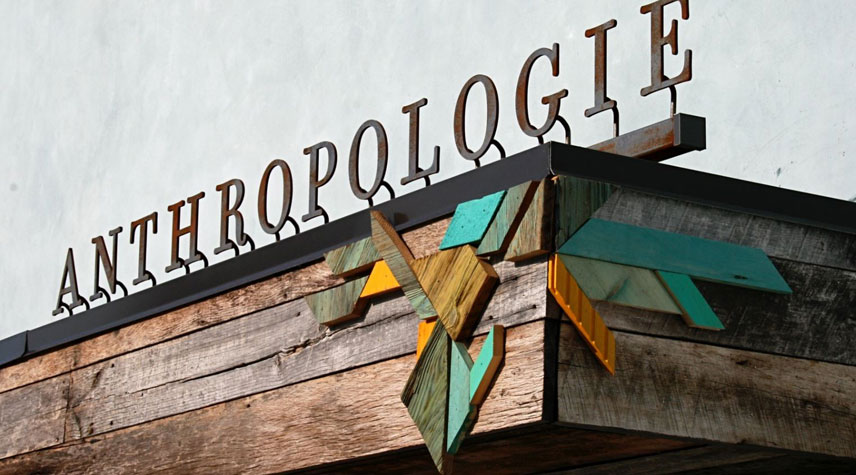Philadelphia – Urban Outfitters, Inc. is concerned about the two-fold risk the coronavirus poses to its business.
As CEO Richard Hayne warned during the company’s fourth quarter earnings call Wednesday: “The bottom line is COVID-19 creates supply chain uncertainty and could create demand uncertainty as well. We are aware of these risks and have taken actions and made plans to mitigate their effects to the best of our abilities, keeping our associate safe is obviously our highest priority.”
A two-fold risk, Hayne said the first is to the company’s supply chain.
“Fortunately, we significantly reduced our sourcing penetration in China over the past two years – moving from over 40% to less than 15% for production of our internally designed product. Getting accurate and reliable information from China is currently difficult. But we believe most Chinese factories and mills have reopened with output running approximately 50% capacity.”
He added the expectation is output will grow steadily over the next two weeks, as workers clear the virus incubation period and return to work.
“In case that doesn’t happen or happens more slowly, our teams are working diligently to secure alternative sources in other regions. We are aware that some delivery delays in the April, May timeframe are likely. This would impact production flow and could increase landing cost as well as we form new factory relationships and use expedited shipping.”
The second risk, he went on, is disruption to the communities where the company operates stores, offices and fulfillment centers.
“We have no store exposure in Asia and our office in China is small,” he noted. “However, there is the potential for flare ups to disrupt communities in Europe and North America. At this time, we have no way to quantify this risk.”
Frank Conforti, chief financial officer, also offered insight, noting the company for now is monitoring the coronavirus situation closely, “planning for as many foreseeable impacts as possible and doing everything we can to support our business, our employees and our business partners, who may be impacted by the outbreak.”
That said, he cited Urban Outfitters Inc.’s comp sales so far in the first quarter have started out in positive territory.
Results for the fourth quarter, ended Jan. 31st, included:
- A 77.4% plunge in net income to $19.5 million, or $0.20 per diluted share, from $86.4 million, or $0.80 per diluted share
- A 3.6% net sales increase to $1.17 billion from $1.12 billion
- A 4% comp gain for the Retail segment driven by growth in the digital channel, partially offset by negative retail store sales.
- By brand, comparable Retail segment net sales increases of 9% at Free People, 6% at the Anthropologie Group and were flat at Urban Outfitters
- A Wholesale segment net sales decrease of 10% due to a 12% decrease at Free People.
“I am pleased to announce record fourth quarter sales driven by a 4% Retail segment comp,” Hayne said. “Positive customer reaction to our early spring assortments bode well for continued comp growth in the first quarter.”
Fiscal 2020 results included:
- A 43.6% drop in net income to $168.1 million, or $1.67 per diluted share, versus $298.0 billion, or $2.72 per diluted share
- A 0.8% net sales increase to $3.98 billion from $3.95 billion
- A 1% comparable Retail segment net sales increased, driven by growth in the digital channel, partially offset by negative retail store sales.
- Wholesale segment net sales decreased 6% due to an 8% decrease at Free People.
Hayne offered more color on the Anthropologie brand’s strong fourth quarter performance, citing its “impressive 6% comp driven by positive results in stores and digital.”
He credited improved product execution and marketing during the fall season, “driving that fiercely loyal Anthropologie customer back into stores during the holiday season. The brand did not disappoint and the provided the customer with what I believe is a best-in-class store experience. This drove positive comp store traffic and sales.”
Now into Q1, Anthropologie’s comp sales to date have maintained the fourth quarter trend.
“The leadership team is especially pleased with customer reaction to the new optimistic and colorful spring apparel assortment,” he added.
The company’s larger brands – Urban and Anthropologie – this year plan to increase owned brand penetrations. Currently, the rates are about 50% and 55%, respectively.
“We’re working very hard to move that up to somewhere in the 60s to 65% on brand penetration, and one of things that’s required in order to do that is to hire additional creative talents including designers to design and help produce that product,” he explained. “So, we’re excited about this concept and it fits in with the whole notion of helping to bring down this trend or take away the trend or an increasing gross margins.”
Also in the works for the company this year is construction on an additional U.S.-based distribution facility. The project’s first phase is expected to take about two years to complete.
“This facility will support the growth and expansion of our retail segment business in North America as well as provide more efficient logistics processing speed as well as faster and more consistent delivery times to our stores and our digital customers,” Hayne said.


